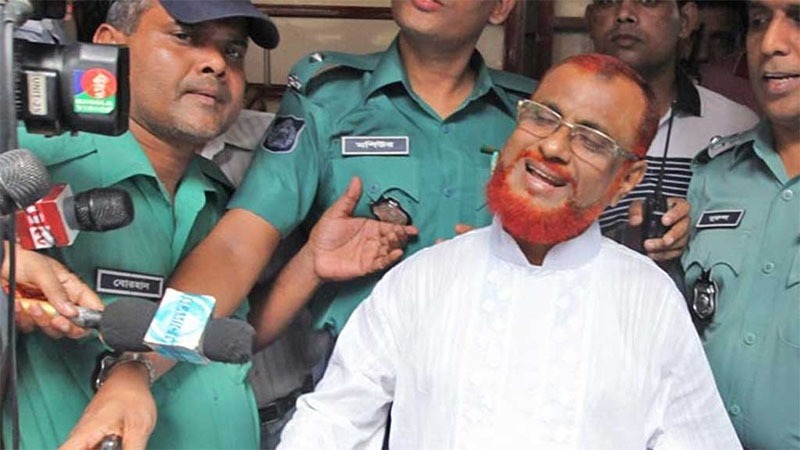In a ruling that has sparked concern across regional observers, particularly in India, the Appellate Division of the Supreme Court of Bangladesh overturned the death sentence of Jamaat-e-Islami leader ATM Azharul Islam, acquitting him of all charges related to the 1971 Liberation War. This marks the first full acquittal in a war crimes case after a review petition, signaling a judicial shift amid mounting political and ideological turbulence since the mass protests of July-August last year.
A seven-member bench led by Chief Justice Syed Refaat Ahmed unanimously delivered the verdict, calling the previous decision a “travesty of truth” and a “miscarriage of justice.” The court declared that earlier evaluations had failed to properly assess the evidence, thus invalidating the basis of Azhar’s death sentence.
Azharul, long known for his alleged leadership of the paramilitary Al-Badr forces in Rangpur and accused of overseeing atrocities including mass killings, rape and torture, was initially convicted by the International Crimes Tribunal in 2014. The 2019 appellate verdict had upheld the sentence, but this new ruling nullifies that judgment entirely.
The timing of the acquittal is politically significant. It comes less than a year after nationwide protests destabilised the ruling order and appeared to open the door for right-leaning Islamist political forces to reassert themselves in Bangladesh’s judicial and political arenas. India, which had supported Bangladesh’s war crimes tribunals as a step toward historical justice and regional stability, is likely to view the decision—and the broader trend of extremist figure releases—with unease.
Since the July 2024 protests, a number of controversial decisions have raised alarms. Political analysts in India have flagged a resurgence of Jamaat-e-Islami influence, a party long banned from contesting elections but now appearing emboldened. The acquittal of Azharul, who was accused of playing a direct role in the massacre of over 1,400 civilians during 1971, is seen as part of a troubling pattern.
Azhar’s lead counsel, Md. Shishir Monir, celebrated the ruling in court, proclaiming, “Truth has triumphed and falsehood has been defeated.” He called the original conviction a distortion of justice and hailed the current verdict as unprecedented in both Bangladesh and global legal history.
However, the ruling has not been without its critics. Legal analysts and political observers in India have expressed quiet dismay at what appears to be judicial leniency toward individuals linked to violent extremism and anti-liberation forces. The concern is rooted in fears that this could embolden extremist networks on both sides of the border.
India’s strategic interest in a stable, secular Bangladesh makes such judicial reversals especially significant. Azharul had long been viewed as one of the most egregious war criminals from 1971 and his release, after over a decade in prison, undermines decades of effort to bring justice for Liberation War atrocities.
A legal adviser to the Bangladeshi government refrained from public comment, but Indian officials are expected to raise the issue through diplomatic backchannels. With cross-border militancy and ideological radicalisation already under scrutiny in the region, Delhi is watching closely.
Who is Azharul?
Azharul, now 73, was born in Rangpur and served as the president of the Islami Chhatra Sangha in the district during the war. He fled to Saudi Arabia just before Bangladesh’s independence and returned post-1975 following the assassination of Bangabandhu Sheikh Mujibur Rahman. Rehabilitated under military dictator Ziaur Rahman, Azhar rose through the ranks of Jamaat-e-Islami, holding key party positions before his arrest in 2012.
His trial, initiated by the International Crimes Tribunal, alleged command responsibility over heinous war-time crimes. The reversal of his conviction and pending release has reignited fears that similar figures, many previously imprisoned for grave offenses, may also seek exoneration through judicial review, potentially reversing years of war crimes accountability.
As Bangladesh’s judiciary charts a controversial new course, India is left to weigh the regional implications—particularly regarding historical justice, religious extremism and the evolving balance of political forces in its eastern neighbor.


